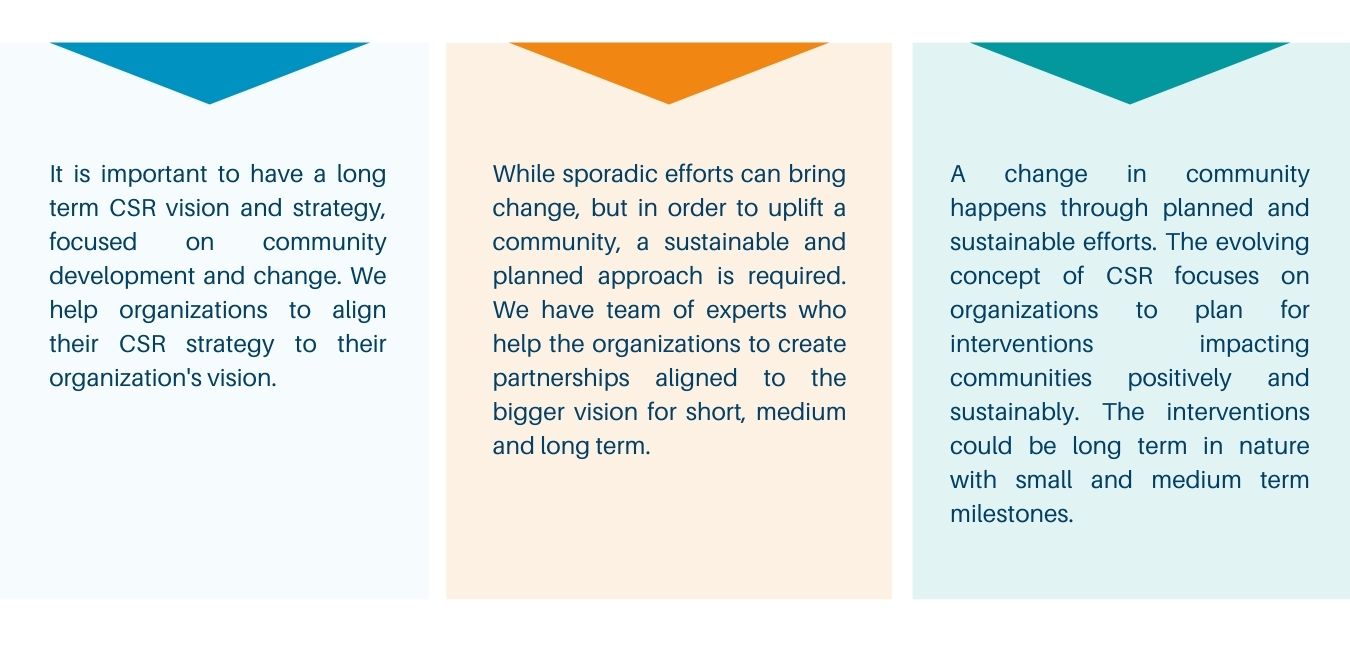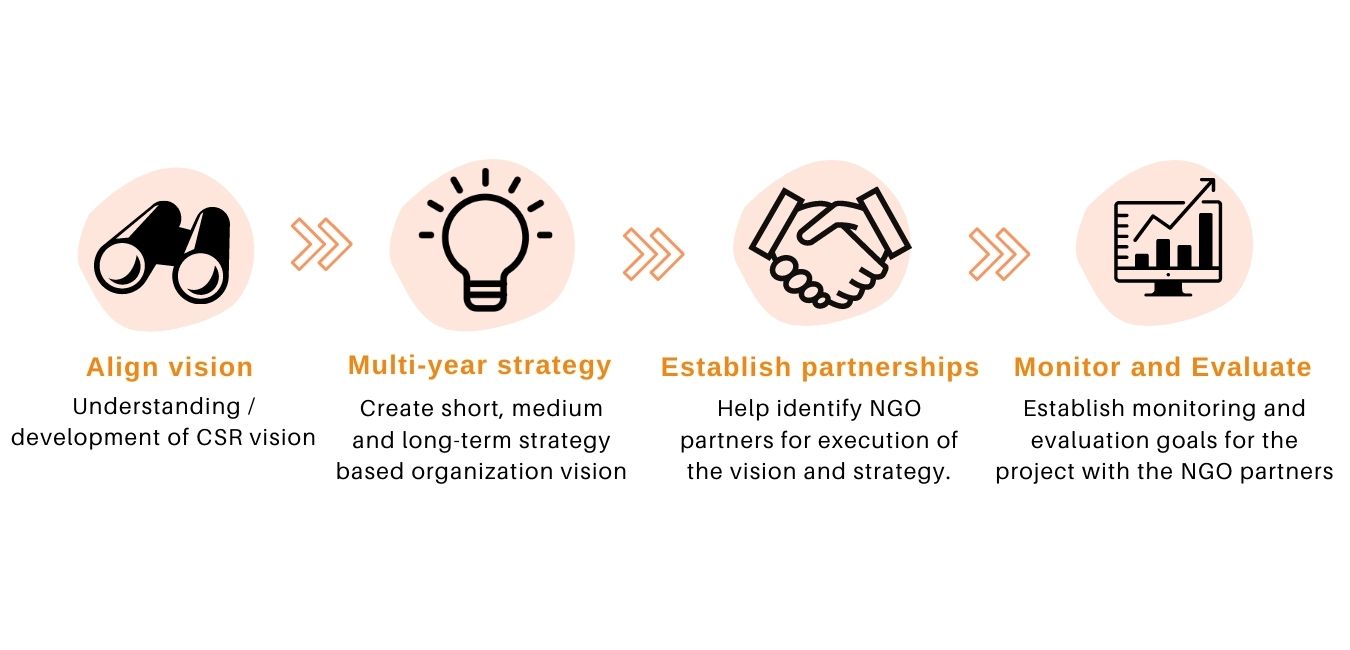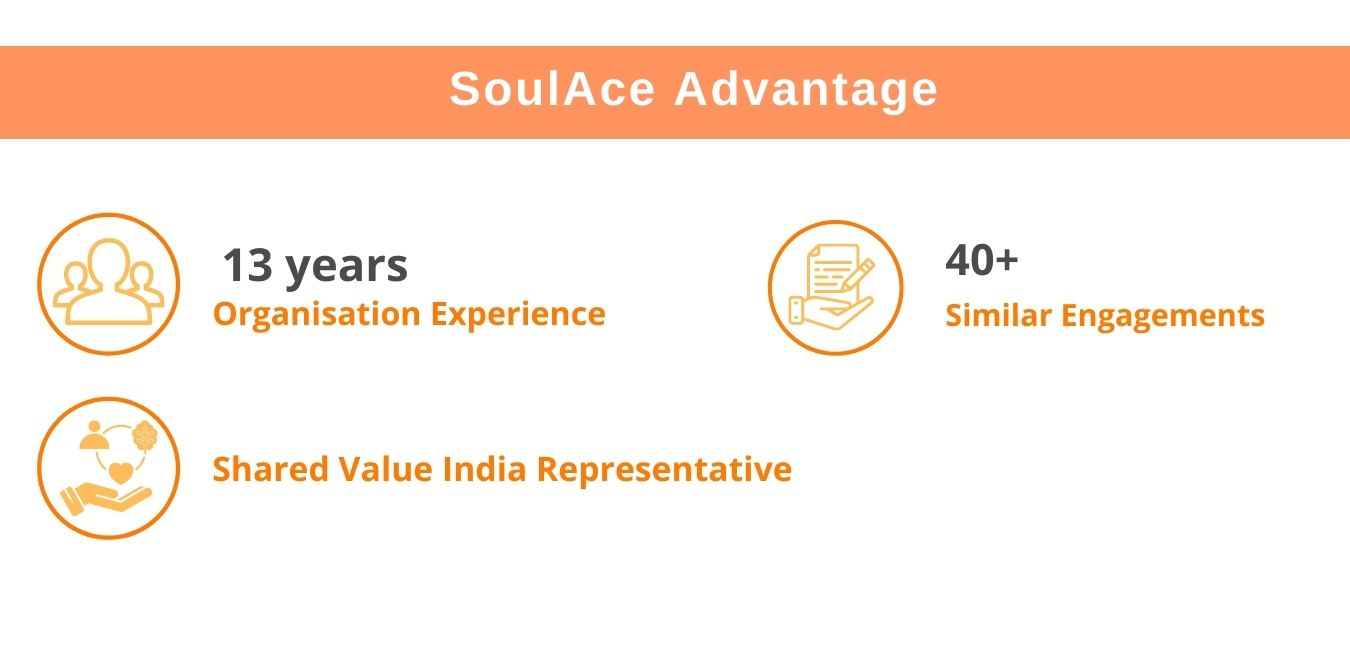- Home >
- Our Services >
- CSR Strategy

CSR strategy like any other strategy is a complex process involving many stakeholders. And, like benefits of any other strategy, CSR strategy can aid community development in a sustainable manner. A well designed and executed CSR strategy can not only benefit communities but also adds a lot of brand value and aids in ESG compliance.

Our CSR strategy creation approach follows a 4 step process. We start by understanding the current vision of the organization and its leadership. We also conduct discussions, survey, etc. with stakeholders on their vision and expectations from the CSR activities. Based on that, we help organizations create CSR vision and align the strategy in accordance with the vision. The strategic road map highlights short, medium and long term initiatives along with the milestones created to implement the strategic plan. We also help the organizations to identify NGO partners in the geography of their interest after due-diligence. Once the partners are identified then the project objectives, goals, monitoring and evaluation parameters are identified.


A CSR strategy is a complete guideline for corporate social responsibility initiatives. It is the main document to tie your CSR program and activities to your company's larger business strategies. A CSR strategy ensures that corporate philanthropy remains on track.
Usually, the CSR department, Human Resources, and/or Office Managers are involved in creating a CSR strategy. They work in sync with the CSR service providers to align strategic planning, CSR activities, sustainability initiatives, and key performance indicators.
It helps companies enhance brand reputation, build customer trust, attract and retain talent, and comply with regulatory requirements. It creates long-term business sustainability while also contributing to social and environmental causes.
A successful CSR strategy must have clear objectives, stakeholder engagement and address sustainability criteria. It must have the right set of KPIs to track progress and be transparent.
Businesses need to identify relevant industry-specific social issues to leverage their expertise and address them. Businesses should ensure that CSR programs complement their long-term business goals.
Companies can avail methods like ESG Metrics & Reports to track sustainability performance. They can also use social impact analysis, employee & community feedback, and third-party audits & certifications.
There can be budget constraints, stakeholder misalignment, defining clear, quantifiable CSR outcomes, and adaptation to regulatory compliance.
A strong CSR strategy must have five key components: ethical labour practices, environmental initiatives, community engagement, responsible sourcing, and transparent governance. Understanding these is essential in creating a meaningful connection with your stakeholders.
SoulAce specializes in providing end-to-end CSR solutions, including program design, implementation, impact assessment, and reporting. We assist organizations in identifying key focus areas, designing CSR projects, managing execution, and measuring impact. Our CSR strategy is focused on creating sustainable and impactful corporate social responsibility programs aligning with business goals and community needs. Our expertise covers education, healthcare, environment, livelihood, and skill development initiatives.
To evaluate the effectiveness of CSR programs, SoulAce uses data-driven impact assessment methodologies, conducts field research, and tracks key performance indicators (KPIs). Our insightful report helps businesses make informed decisions about future ventures.

Corporate Social Responsibility (CSR) is a key component of organisational operations, with companies looking to have a positive impact on society and the environment. However, measuring the impact of CSR initiatives can be challenging.

Corporate Social Responsibility (CSR) initiatives are becoming increasingly important for companies. It enhances their reputation and demonstrates their commitment to making a positive impact on society and the environment.

Corporate Social Responsibility, or CSR in general, is a set of self-regulating practices that an organization adopts to make itself socially accountable to itself, its stakeholders, and the public.